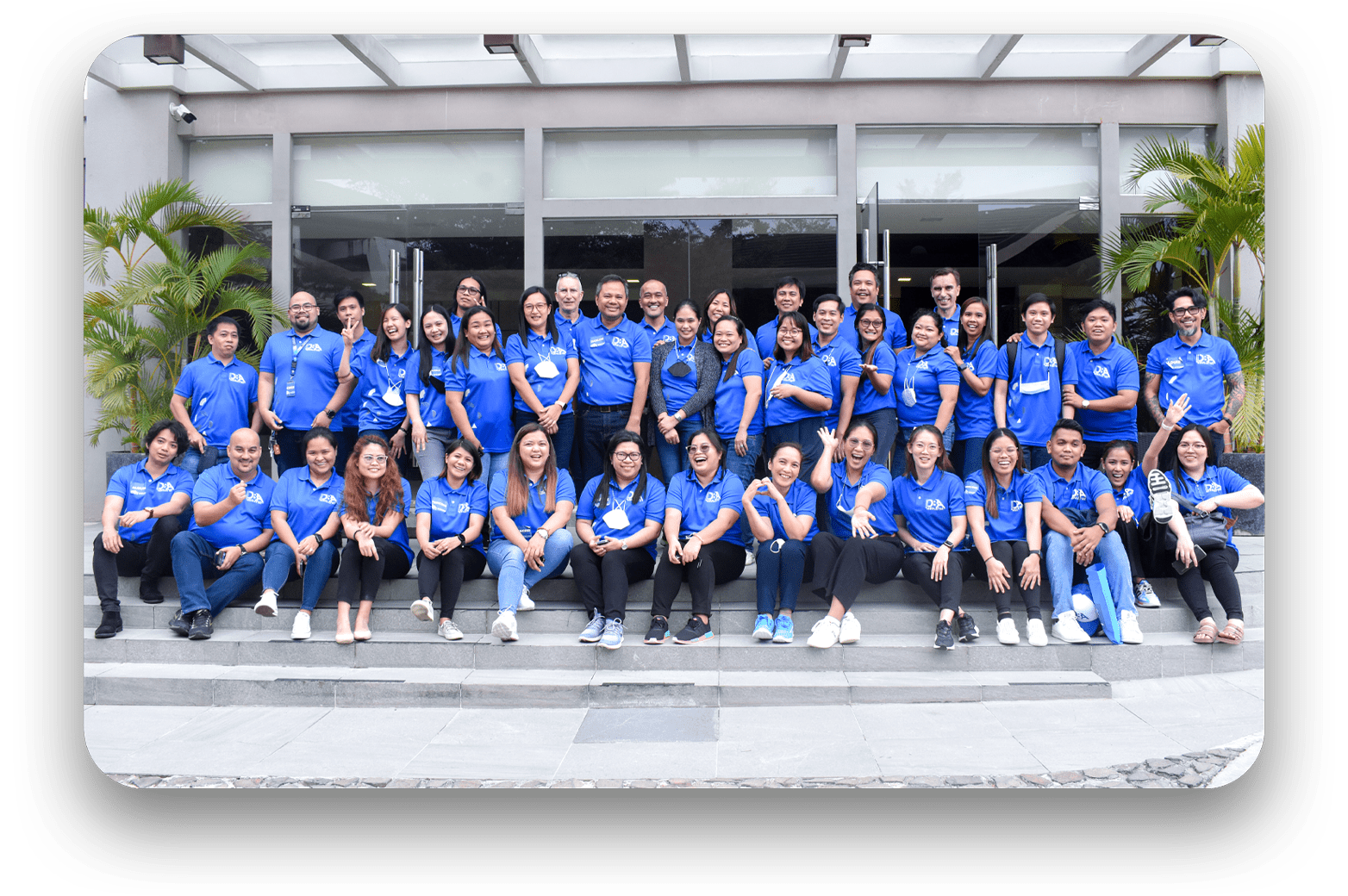Whilst hiring overseas freelancers give businesses several advantages, it comes with potential legal challenges and risks.
The Fair Work Commission’s (FWC) ruling in favour of an offshore worker is causing quite a stir in the business world. This precedent has opened a pandora’s box of potential legal issues for small businesses directly engaging overseas freelancers or contractors. Sadly, the legal challenges of hiring overseas freelancers seem to have outweighed the value of engaging with them.

Pascua vs. Doessel Group Pty Ltd
The case involved a freelancer based in the Philippines who lodged an unfair dismissal claim against a Queensland law firm. According to Doessel Group Pty Ltd, Ms. Pascua was dismissed due to an alleged breach of contract. They further alleged that Ms. Pascua was not dismissed since she was an independent contractor and not an employee.
However, after a thorough review of the contract, the FWC found that Ms. Pascua and Doessel Group Pty Ltd had an employment relationship. The FWC also noted that the terms and provisions of the contract referred to Ms. Pascua as an employee. Moreover, the scope of work required, identified KPIs, and the implied level of control reflect employment instead of contracting. Furthermore, Ms. Pascua was found to have been working inside the law firm’s business instead of providing services for it.
The FWC determined that the arrangement between both parties constitute as an employment arrangement instead of contracting. Thus, Ms. Pascua can be classified as an Australian National System Employee—entitled to rights and benefits. Moreover, as an employee, Ms. Pascua can claim compensation for unfair employment conditions.
The Fair Work Act 2009 – Sect 386 defines “dismissed” as an employee that was either terminated or forced to resign by their employer. Hence, after confirming the employment relationship, the FWC accepted Ms. Pascua’s application for an unfair dismissal remedy under the Fair Work Act 2009 Section 394.
The Fair Work Commission (FWC) recently accepted an application for an unfair dismissal remedy lodged by an overseas freelance worker from the Philippines, sparking nation-wide debate over the extent of the Fair Work Act.
Freelancers vs. Outsourcing
Hiring overseas freelancers, offshoring and outsourcing is not new in Australia. In fact, around 80% of Australian businesses outsource or use overseas freelancers to perform some of their processes. Businesses have embraced such practices as the volatile economy, increasing costs and labour shortages continue to significantly impact the industry.

Freelancing
Freelancing is a type of self-employment, where individuals offer their services as an independent contractor on a project-by-project basis. Engaging freelancers presents numerous advantages for businesses, regardless of their size, including:
1. Cost-effectiveness
Independent contractors or freelancers typically provide their expertise and experience only to on-demand short-term work, i.e., pay-per-project-model. Hence, businesses who directly hire overseas freelancers only pay for the work done upon completion of the task or project.
In addition, there are no overhead or administrative costs involved when hiring overseas freelancers. Typically, freelancers already have the space and equipment they need to perform their engaged tasks. Moreover, overseas freelancers are responsible for maintaining compliance with local labour laws and regulations, including tax compliance requirements. In addition, freelancers manage their own schedule and workload—significantly reducing the administrative burden from businesses.
2. Flexibility
Freelancing also enables businesses to scale up or down quickly. If there are urgent deadlines or a sudden increase in workload, businesses can easily hire freelancers to increase their workforce. Consequently, they can easily disengage their freelancers once the project is over or if project changes don’t require such expertise anymore.
Moreover, because their specialised skills are not readily available in the talent market, freelancers usually engage with multiple businesses at a time. Hence, they are rather driven and focused on delivering high-quality results within set deadlines.
3. Innovation
Freelancers typically offer specialised skills or niche expertise in a particular task or project without the long-term obligations of full-time employees. This gives businesses the chance to create a team of experts or specialist, which they can hire only when needed.
Consequently, businesses with a team of freelancers can have experts with different backgrounds and experience. Moreover, freelancers offer their skill set and experience to businesses anywhere in the world. Thus, they can provide fresh ideas and innovative approaches and promote creative solutions to the tasks or project.

Outsourcing
Outsourcing is a business practice where a business engages with a third-party for their business and staffing needs. This may include outsourcing minor tasks, core functions, or services traditionally done in-house on an ongoing basis.
Although freelancing offers a more affordable solution to businesses, outsourcing is the safer and more cost-efficient option. The benefits outsourcing offers businesses include:
1. Cost Savings
Outsourcing service providers or firms are usually found in countries with lower labour costs, yet has a very competitive talent pool. Hence, outsourcing allows businesses to maintain quality while significantly reducing operational expenses. This can free up resources for investment in other crucial areas of the organisation—ultimately driving growth.
Outsourcing also enables companies to eliminate overhead costs, particularly expenses associated with hiring, training, and managing in-house staff. Thus, allowing businesses, especially startups and small enterprises, to allocate funds more strategically and specifically towards growth initiatives.
2. Flexibility and Efficiency
Outsourcing allows businesses to easily scale as their workload increases or decreases—without the lengthy process of recruiting and training new employees. In addition, outsourcing firms often offer contracts that allow for changes in service levels or scope. Thus, businesses can respond and adapt promptly to evolving business requirements and market demands, whilst effectively reducing staffing issues and overhead costs.
Outsourcing also enables businesses to access a global talent pool of professionals with a wide range or diverse skills and expertise. These experts have specialised skills and a deep understanding of best practices and methodologies for enhancing the quality of particular tasks. They are also equipped with the technical skills and optimal tools necessary to optimise processes, yield better results and streamline operations.
Moreover, outsourcing non-essential activities and routine tasks allows businesses to focus on their core functions and strategic goals. Delegating non-core activities to outsourcing firms enables businesses to allocate more resources—both human and financial—toward strategic initiatives. This redirection of focus not only leads to improved competitiveness in the marketplace but also fosters a culture of growth and development.
Around 80% of Australian businesses outsource part of their operations or use overseas freelancers to perform some of their processes in the hopes of easing the burden of increasing costs and labour shortages.

3. Innovation and Quality
The expertise of outsourcing firms also leads to reduced errors, higher customer satisfaction, reinforced operational performance and a competitive edge in the market. These firms usually work with various clients across different sectors, giving them diverse experiences that foster a culture of continuous improvement. Hence, they can easily adapt and evolve in response to evolving trends and keep businesses competitive in a rapidly changing market.
Outsourcing providers also have access to the latest technologies and methodologies and often invest in research and development. This access not only enables them to amplify operational efficiency, but also reduce the risk of technological obsolescence. Thus, enabling them to deliver tailored solutions that meet specific business needs and results that align with the highest expectations.
Outsourcing firms often specialise in particular industries, bringing a wealth of knowledge and experience that can significantly boost service quality. Leveraging the expertise of outsourcing providers allow businesses to harness new perspectives, and fresh ideas and approaches—ultimately fostering a culture of innovation. This can lead to creative problem-solving and the development of new products, services, or processes that maximise overall business performance.
4. Risk Mitigation and Resilience
Outsourcing providers typically have a deep understanding of industry standards, best practices, and regulatory requirements, and can navigate complex legal landscapes more effectively. Hence, outsourcing enables businesses to mitigate their exposure to risks associated with compliance issues, employee management, operational failures and other liabilities.
Outsourcing also plays a crucial role in business continuity and can significantly enhance an organisation’s operational resilience. Many outsourcing providers offer backup services, comprehensive disaster recovery solutions and business continuity planning to maintain operations during challenging circumstances. Thus, ensuring that critical support services are maintained in times of crisis or unexpected disruptions—from natural disasters to cybersecurity threats.
Having a reliable outsourcing partner enables businesses to ensure that critical functions remain operational, minimizing downtime and preserving customer trust. The strategic use of outsourcing can thus create a more robust framework for navigating challenges. Moreover, businesses can keep operations running smoothly and remain agile and responsive despite external pressures.
The Pascua vs. Doessel Group Pty Ltd is a solid demonstration of the Fair Work Act's power over ensuring the rights and entitlements of Australian employees and whomever it considers as National System Employees are protected.
Legal Challenges of Hiring Overseas Freelancers
The Fair Work System is the national workplace relations system—comprised of the minimum employment laws and agency bodies established by the Fair Work Act 2009. It includes the national Employment Standards or the minimum employee entitlements of National System Employees and some non-national system employees.
The Pascua vs. Doessel Group Pty Ltd case showed how powerful and encompassing the Fair Work System can be. It demonstrated how overseas freelancers can also be considered Australian National System Employees. Moreover, it showed how it can protect not only Australian workers, but also global workers employed by Australian businesses.
Already, this matter is being discussed not only in Australia, but also in the Philippines. Moreover, experts believe it could lead to many Filipino freelancers enforcing the Australian Minimum Conditions, under the Fair Work Act. Hence, businesses directly hiring overseas freelancers may soon find themselves facing the FWC to address potential claims and disputes.
With the Fair Work System extending its reach beyond the shores of Australia, we can expect other countries to follow suit. Fortunately, businesses engaged with outsourcing providers are safe from such legal challenges as outsourcing firms are compliant with local and international labour laws.

DBA vs. Freelancers
DBA Global is a Knowledge Process Outsourcing firm under the DBA Group. We are an incorporated business in the Philippines and maintain a strict compliance with all the relevant laws and regulations.
We provide a wide range of values-based services to businesses who want to gain an advantage in their industry. Our team of qualified professionals offer a personalised approach to help businesses achieve their goals, whilst keeping your costs lean.
Moreover, we have a robust risk management framework in place, which further enhances our clients’ overall risk profile. With this proactive approach to risk mitigation, we can safeguard our clients’ assets and boost their resilience in the face of unforeseen events.
DBA Global is also an ISO/IEC 27001:2022-Information Security Management System certified organisation. This certification is a testament to our commitment to compliance with international data and information security laws and regulations.
Why risk the legal challenges of hiring overseas freelancers?

Maann Sagun, MDC, DMP

Maann Sagun, MDC, DMP
Share


DBA’s Global Head of Sales and Marketing, Jason Ryan recently attended the Intrigue MAdVerse Conference in Melbourne, where key insights around the evolving concept of “value” were shared. His takeaway: value is not just a concept—it’s an experience that is deeply human. At DBA, we are committed to embracing innovation while staying rooted in empathy, creativity, and connection to build a future where technology and humanity thrive together. Read more of his insight here!

Jason Ryan CFP, DBA’s Global Head of Sales and Marketing, attended the Symphony Conference in February, hosted by Fin365, Principals Community, and Netwealth. The event brought together industry leaders and professionals to discuss the latest trends and strategies in the financial services sector.






© 2024 DBA. All Rights Reserved.





